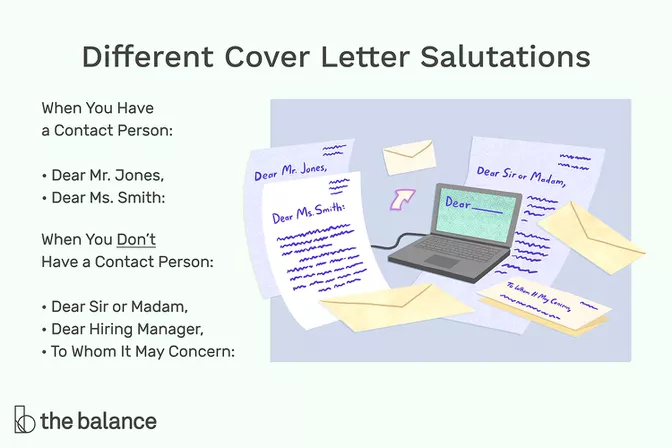How to Write a Cover Letter: The All-Time Best Tips

Ok, the feared introductory letter. Each time you plunk down to keep in touch with one, you presumably peruse introductory letter models on the web, get overpowered, and think something with the impact of: Does anybody truly peruse these? Wouldn’t it be such a great deal simpler if I would just allow my resume to justify itself with real evidence?
For one thing: Yes, we can guarantee you that introductory letters do, truth be told, get perused. Indeed, to some employing chiefs, they’re the main aspect of your responsibilities application. Also indeed, while it would be simpler to allow your resume to represent itself with no issue, assuming that was the case you’d totally pass up on the chance to let imminent managers know what your identity is, feature why they should recruit you, and stand apart over the wide range of various up-and-comers.
Prepared to make a plunge? To ensure your letter is looking astounding (and making it is pretty much as easy as could really be expected), we’ve welcomed the best counsel on composing an introductory letter into one spot. Peruse on—then, at that point, get to composing!
Compose a Fresh Cover Letter for Each Job
Indeed, it’s way quicker and more straightforward to take the introductory letter you composed for your last application, change the name of the organization, and send it off. In any case, most bosses need to see that you’re genuinely amped up for the particular position and friends—which means making a custom letter for each position you apply for.
While it’s OK to reuse a couple of solid sentences and expressions starting with one introductory letter then onto the next, don’t ponder conveying a 100% nonexclusive letter. “Dear Hiring Manager, I am eager to apply to the vacant situation at your organization” is a prompt sign to enrollment specialists and employing directors that you’re continue besieging each occupation posting around. Botches like this can get your application thrown straight in the waste.
Incorporate the Hiring Manager’s Name
The most customary method for addressing an introductory letter is to utilize the individual’s first and last name, including “Mr” or “Ms.” (for instance, “Dear Ms. Jane Smith” or just “Dear Ms. Smith”). Assuming you know without a doubt that the organization or industry is more easygoing, you can drop the title and last name (“Dear Jane”). Furthermore assuming that you’re not 100% positive whether to utilize “Mr” or “Ms.” in light of the name and some Googling, certainly avoid the title.
Never utilize nonexclusive welcome like “To Whom it May Concern” or “Dear Sir or Madam”— they’re solid, obsolete, and did we specify that introductory letters should be tweaked? Assuming you can’t sort out the particular employing supervisor’s name, take a stab at addressing your introductory letter to the top of the office for the job you’re applying for. Or then again assuming you genuinely can’t track down a solitary genuine individual to address your letter to, target something still to some degree explicit, similar to “Frameworks Engineer Hiring Manager” or “Record Executive Search Committee.”
Create a Killer Opening Line
No compelling reason to lead with your name—the employing administrator can see it currently on your resume. It’s great to make reference to the gig you’re applying for (the employing administrator might be searching through possibility for about six unique positions), and indeed, you could go with something basic like, “I’m eager to apply for [job] with [Company].” But consider presenting yourself with a smart first sentence that features your fervor about the organization you’re applying to, your energy for the work you do, or your previous achievements.
Go Beyond Your Resume
A very normal trap many work searchers fall into is to utilize their introductory letter to spew what’s on their resume. Don’t just rehash the same thing: “I was responsible for distinguishing and reconnecting previous customers.” Instead, develop those list items to illustrate your encounters and achievements, and hotshot for what reason you’d be ideally suited for the gig and the organization.
For instance: “By breaking down past customer overviews, NPS scores, and KPIs, just as essentially getting the telephone, I had the option to bring both an information driven methodology and a human touch to the undertaking of reconnecting previous customers.”
Experiencing difficulty sorting out some way to do this? Have a go at posing yourself these inquiries:
What approach did you take to handling one of the obligations you’ve referenced on your resume?
What subtleties would you incorporate assuming you were telling somebody a (exceptionally short!) tale regarding how you achieved that list item?
Shouldn’t something be said about your character, enthusiasm, or hard working attitude made you particularly great at taking care of business?
Think Not What the Company Can Do for You
Another normal introductory letter botch? Discussing how extraordinary the position would be for yourself as well as your resume. Honestly, employing supervisors know about that—what they truly need to know is the thing that you will bring to the position and friends. Attempt to recognize the organization’s trouble spots—the issue or issues that they need the individual they recruit to settle. Then, at that point, underline the abilities and experience you have that make you the ideal individual to address them.
Feature the Right Experiences
Not certain what abilities and encounters you ought to include? Regularly the main necessities for the position will be recorded first part of the set of working responsibilities, or referenced at least a couple of times. You’ll need to ensure you depict how you can follow through on those key needs.
Another stunt: Drop the text of the set of working responsibilities into a word cloud apparatus like WordClouds, and see what sticks out. That is the thing that the recruiting administrator is searching for most.
Exhibit Your Skills
At the point when you realize you can possibly do the work—yet your previous experience doesn’t directly sell you as the ideal individual for the position—have a go at zeroing in on your abilities all things being equal. That abilities based format we referenced before will assist you with doing exactly that. (Psst: You can likewise adopt this strategy with an abilities based resume.)





